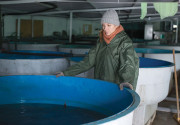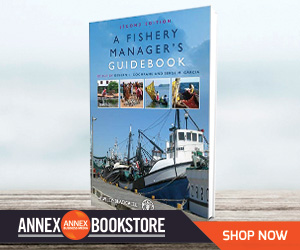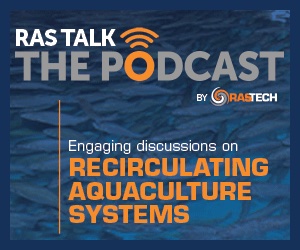| |
| |
 |
 |
| |
 |
|
@{mv_date_MMM d, yyyy}@ |
|
| |
Kindness may be the key to winning the anti-salmon-farming activism war.
» Read more
North Island College is launching four research projects, focused on future-proofing seafood production with B.C. coastal communities.
» Read more
The intention is noble, but will the cell-based product stack up to the real thing?
» Read more
|
| |
|
| |

Fleming College is launching a new Aquaculture Foundations certificate this fall. The program is two semesters online, culminating with a 90-hour work placement to provide real-world experience. The placement allows students to put theory into practice and provides valuable on-the-job training. Students can complete their placement at the Fleming fish hatchery at the Frost Campus in Lindsay, Ont., or at a placement with an industry employer.
The program also features a unique emphasis on Indigenous studies, with Indigenous practices and approaches to aquaculture embedded across the curriculum.
» Learn more |
| |
|
| |
 A growing number of fish farmers conduct pre-shipment health testing of their fish. Whether your operation is vertically integrated or you purchase fish from an independent producer for further grow-out, the health of those fish at the time they enter your facility will impact their productivity and influence your overall success as a fish farmer.
» Read more
A growing number of fish farmers conduct pre-shipment health testing of their fish. Whether your operation is vertically integrated or you purchase fish from an independent producer for further grow-out, the health of those fish at the time they enter your facility will impact their productivity and influence your overall success as a fish farmer.
» Read more |
| |
|
| |

This volume is intended to contribute to improving this unsatisfactory state by addressing the widespread need for information and guidance on the broad and often complex task of fisheries management. It is an updated and expanded edition of the first version of “A Fishery Manager’s Guidebook” which was published as a FAO Fisheries Technical Paper in 2002.
The major part of this new edition is divided into five parts intended to cover the range of concerns, tools and techniques essential to the modern fisheries manager, whether that manager is an individual or a formal or informal group.
» Learn more |
| |
|
| |
Animal nutrition company Cargill has set out an ambitious target of reducing the farmed salmon industry’s carbon footprint by 30 per cent per tonne of fish produced by 2030.
» Read more
|
|
An award-winning technology made in Campbell River, British Columbia has helped a salmon farmer reduce its carbon emissions by 76 metric tonnes.
» Read more
| | |
|
| |

|
| |
|
| |
May 9-13, 2022
Tórshavn, Faroe Islands, Denmark
» Learn more
|
| |
| |






